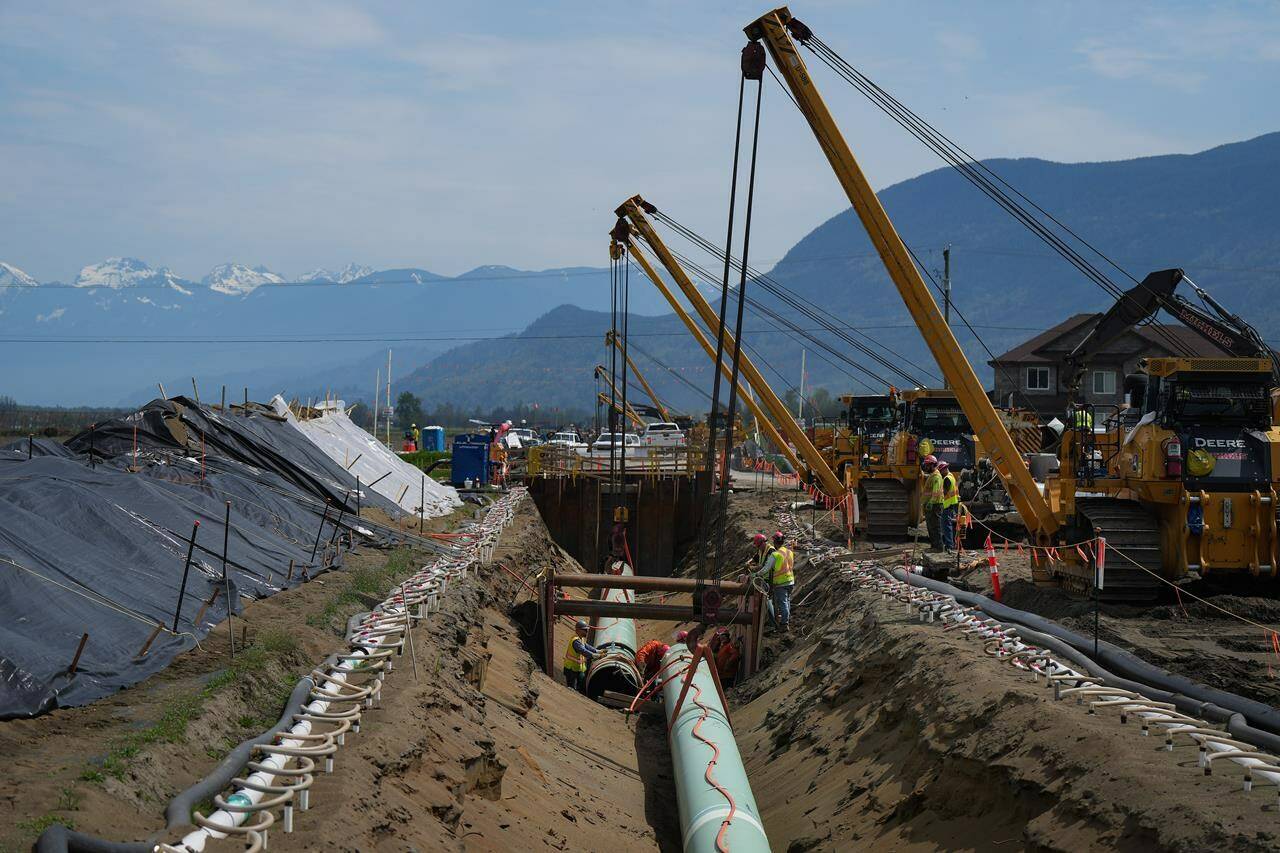Wednesday marks the official start date of the long-awaited $34-billion Trans Mountain oil pipeline expansion project.
Crown corporation Trans Mountain Corp. says as of Wednesday, the expanded pipeline from Alberta to the B.C. coast will be transporting crude oil.
The project involved twinning an existing pipeline that runs from Alberta to the B.C. coast.
It took more than four years to construct, and was one of the most costly infrastructure projects in Canadian history.
The expansion increases the Trans Mountain system’s shipping capacity from 300,000 barrels per day to 890,000 barrels per day, and will help open up global export markets for Canadian oil.
The increased capacity is expected to help improve the price Canadian oil companies receive for their product.
But even though the project is now complete, question marks linger as the federal government has said it intends to sell the pipeline.
The government purchased the pipeline for $4.5 billion in 2018 in an effort to get the project over the finish line, and has stated it does not wish to be its long-term owner.
Experts say because the project’s price tag ballooned over the course of construction, the government will likely take a significant writedown if it sells.
Companies that ship oil on Trans Mountain are now subject to the new expanded system’s tariffs and tolls. But Trans Mountain is currently locked in a dispute with its oil company customers about these rising fees.
The Crown corporation has said the higher fees are necessary to help to cover the budget overruns, which it has said were caused by things like the COVID-19 pandemic, extreme weather, and the need to deal with archeologically significant sites along the pipeline’s route.
READ ALSO: Trans Mountain pipeline: The economics of oil
READ ALSO: Trans Mountain pipeline gets May 1 greenlight to open

